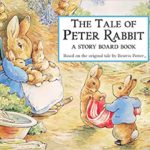English - Writing focus
WJI Purpose of study:
English has a pre-eminent place in education and in society. A high-quality education in English will teach pupils to speak and write fluently so that they can communicate their ideas and emotions to others, and through their reading and listening, others can communicate with them. Through reading in particular, pupils have a chance to develop culturally, emotionally, intellectually, socially and spiritually. Literature, especially, plays a key role in such development and is the keystone to creating excellent writers. All the skills of language are essential to participating fully as a member of society; pupils who do not learn to speak, read and write fluently and confidently are effectively disenfranchised.
At Whiston Junior and Infant School, we aim to give our children a writing curriculum which enables them to become confident, creative and independent writers who are well able to articulate their own ideas. We support our children to develop transferable skills which they can use across the wider curriculum and throughout their lives. We use educational visits, high quality literature, film, art and music as stimuli for writing which links learning to real life experience and provides a contextualised, meaningful curriculum. Whiston writers leave with a strong independent writer’s voice and the technical skills necessary to communicate clearly in the modern world.
‘Writing is the painting of the voice.’
Voltaire
Intent
The overarching aim for English in the national curriculum is to promote high standards of language and literacy by equipping pupils with a strong command of the spoken and written language, and to develop their love of literature through widespread reading for enjoyment. At Whiston J and I, we are passionate about our reading and writing curriculum and how the two will interweave to make excellent readers into excellent and aspiring writers. Our aim is to embed the love of reading and writing so that children not only are able readers, but read for pleasure and feed that knowledge implicitly into their writing.
The national curriculum for English aims to ensure that all pupils:
- Read easily, fluently and with good understanding
- Develop the habit of reading widely and often, for both pleasure and information
- Acquire a wide vocabulary, an understanding of grammar and knowledge of linguistic conventions for reading, writing and spoken language
- Appreciate our rich and varied literary heritage
- Write clearly, accurately and coherently, adapting their language and style in and for a range of contexts, purposes and audiences
- Use discussion in order to learn; they should be able to elaborate and explain clearly their understanding and ideas
- Are competent in the arts of speaking and listening, making formal presentations, demonstrating to others and participating in debate.
Implementation
At Whiston J and I, we have created a curriculum based around the purposes for writing: To entertain, to inform, to persuade and to discuss. Within each of these purposes, pupils will study and write in different genres which fulfil the purpose for their writing and understanding the audience that they are writing for. Children revisit these genres across the year and their school-life in order to deepen their mastery. In Key Stage 1, children focus on a more narrow range of genres heavily based on familiar stories, experiences and knowledge so that they can concentrate more fully on developing the craft of writing. During Key Stage 2, children broaden their experience of different genres and have the opportunity to develop their writing skills across a range of subjects. We have a clear progression of skills throughout the writing process through all year groups documented in our overall progression document and itemised through terms in our small steps grammar progression document. Our writing curriculum is carefully planned to ensure that it maps out a progression of knowledge and skills linked to National Curriculum guidelines. A range of genres, increasing in breadth in Key Stage Two, are taught in all year groups. These include both fiction and non-fiction text types.
Impact
At Whiston J and I, we give our children a writing curriculum which enables them to become confident, creative and independent writers who are well able to articulate their own ideas. We support our children to develop transferable skills which they can use across the wider curriculum and throughout their lives. We use educational visits, high quality literature, film, art and music as stimuli for writing which links learning to real life experience and provides a contextualised, meaningful curriculum. We formatively assess on a regular basis during daily writing sessions, and undertake summative assessment half termly in independent pieces using agreed assessment proforma. In addition, we moderate within key stages and within the academy at set times during each academic year. This enables teachers to set appropriate, progressive targets and challenge children in their thinking and learning. Whiston writers leave with a strong independent writer’s voice and the technical skills necessary to communicate clearly in the modern world.
Handwriting
We teach children to use a continuous cursive style of handwriting using the Letter-Join scheme. They start with individual letter formation and correct pencil grip in EYFS. Children begin to join when their letter formation is secure; usually, within Y2. Children are expected to produce neat, joined, legible handwriting at all times.
| Name |
|---|

“There is something delicious about writing the first words of a story. You never quite know where they’ll take you.”
Beatrix Potter
| Name | |
|---|---|
| Year_3_Vocabulary__Grammar_and_Punctuation_Appendix.pdf | Download |
| Year_4_curriculum.pdf | Download |
| Year_4_Vocabulary__Grammar_and_Punctuation_Appendix.pdf | Download |
| Year_5-6_Spelling_Appendix.pdf | Download |
| Year_5_curriculum.pdf | Download |
| Year_5_Vocabulary__Grammar_and_Punctuation_Appendix.pdf | Download |
| Year_6_curriculum.pdf | Download |
| Year_6_Vocabulary__Grammar_and_Punctuation_Appendix.pdf | Download |
| [370909]English_Genres_from_the_Comprehension_Sections_of_the_2014_Curriculum_by_Year_Group.pdf | Download |










































